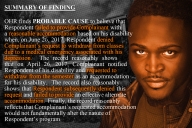You have /5 articles left.
Sign up for a free account or log in.
 Clear and Present Safety: The World Has Never Been Better and Why That Matters to Americans by Michael A. Cohen and Micah Zenko
Clear and Present Safety: The World Has Never Been Better and Why That Matters to Americans by Michael A. Cohen and Micah Zenko
Published in March of 2019.
I was convinced of the main arguments of Clear and Present Safety before I even read the book. This is dangerous. Confirmation bias is a thing.
Those arguments are:
A. The world has experienced an amazing amount of economic and social progress over the last few decades.
B. This story of progress is too little discussed or understood, which leads too many (including students and academics) to be overly pessimistic about the future.
C. We tend to be overly worried about the wrong things (such as the existential threat of terrorism), and too little concerned about the right things (such as our eroding infrastructure and failure to invest in our nation's human capital).
Clear and Present Safety is useful, as the book not only chronicles why we should be optimistic about the future, it offers an explanation as to why we are so depressed.
In Cohen and Zenko's estimation, the source of our misplaced anxieties is equal parts the profit motive and intellectual dishonesty. Retired general and government employees have a vested industry in hyping fear, as they often leave public service to take lucrative consulting gigs with defense contractors.
The media hypes fear by failing to disclose the conflicts of interest of many of their talking heads. Plus, ratings and circulation numbers are driven by crisis and catastrophe. The story of how a billion people have ascended from extreme poverty (under $1.25 a day) since 1990 does not make for a sexy headline or "breaking news" special report.
Cohen and Zenko argue that the Threat-Industrial Complex (TIC), their name for the web of companies and think tanks and commentators who hype our misplaced fears, constitute our greatest inhibitor of future progress.
The question I have for you is, can you argue with the progress story?
Can you point to any objective indicator of health or well-being that, globally and on average, has gotten worse since the year I was born (1969)?
Yes, we can point to global warming. That is getting worse. Income inequality and extreme wealth concentration. Also becoming more pronounced in the last 50 years.
But what else?
Every measure of poverty, wealth, health, violence, education, political freedom, literacy, and nutrition that I know are improving.
We have major challenges in every area of the world, including our own existential challenges around the economic sustainability of the liberal arts model of higher education. The world is not perfect, and the arc of the global progress is long, but is surely bends towards advancement.
Can you argue with the conclusions of Clear and Present Safety, and the other six books listed below? (Links lead to my reviews).
- Factfulness: Ten Reasons We're Wrong About the World--and Why Things Are Better Than You Think by Hans Rosling
- It's Better Than It Looks: Reasons for Optimism in an Age of Fear by Gregg Easterbrook
- The Great Escape: Health, Wealth, and the Origins of Inequality by Angus Deaton
- Enlightenment Now: The Case for Reason, Science, Humanism, and Progress by Steven Pinker
- Progress: Ten Reasons to Look Forward to the Future by Johan Norberg
- The Great Surge: The Ascent of the Developing World by Steven Radelet
Looking forward to your depressing comments.
What are you reading?








